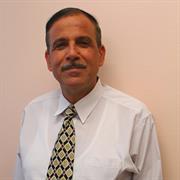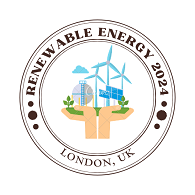Scientific Sessions
Session on Advancements in Solar Energy Technology: Efficiency, Storage, and Integration
The session on "Advancements in Solar Energy Technology: Efficiency, Storage, and Integration" at the World Summit on Renewable Energy and Resources is dedicated to exploring the latest breakthroughs and innovations in solar energy. Solar power has emerged as a leading renewable energy source, and this session aims to highlight the advancements that enhance its efficiency, storage capabilities, and seamless integration into existing energy systems. Experts from around the world will present cutting-edge research and developments in solar panel technologies, including improvements in efficiency and cost-effectiveness. The session will delve into the latest materials, manufacturing techniques, and designs that maximize solar energy generation, making it a viable and sustainable option for a wide range of applications. Storage solutions play a vital role in ensuring the stability and reliability of solar energy systems. During this session, participants will gain insights into advanced energy storage technologies, such as batteries and thermal storage, that enable the effective utilization of solar power even during non-sunlight hours. Discussions will also cover grid integration strategies, exploring how solar energy can be seamlessly integrated into existing power grids, including smart grid technologies and grid-scale storage solutions. Moreover, the session will highlight successful case studies and real-world applications of solar energy technology advancements, showcasing their practical implementation in diverse sectors like residential, commercial, industrial, and rural electrification.
By attending this session, participants will gain a comprehensive understanding of the latest advancements in solar energy technology, storage solutions, and integration strategies. Together, we can harness the power of the sun more efficiently, store it effectively, and seamlessly integrate it into our energy systems, driving the global transition towards a cleaner and more sustainable future.
Session on Harnessing the Power of Wind: Innovations in Wind Energy Generation and Grid Integration
Harnessing the Power of Wind: Innovations in Wind Energy Generation and Grid Integration" at the World Summit on Renewable Energy and Resources will focus on the latest advancements and innovations in wind energy technology. As one of the fastest-growing renewable energy sources, wind power has significant potential to drive the transition towards a sustainable future. During this session, experts and industry leaders will discuss cutting-edge developments in wind turbine design, efficiency enhancement, and offshore wind energy generation. Participants will gain insights into the latest innovations in blade design, materials, and aerodynamics, leading to increased energy capture and cost-effectiveness. Grid integration of wind energy is a crucial aspect to ensure the seamless incorporation of wind power into existing energy systems. The session will explore smart grid technologies, energy storage solutions, and grid management strategies that enable efficient integration and management of variable wind power generation. Moreover, the session will showcase successful case studies and projects from around the world, highlighting the real-world applications and benefits of wind energy. From onshore to offshore wind farms, participants will learn about the challenges faced and innovative solutions deployed in various wind energy projects.
By attending this session, participants will gain valuable knowledge about the latest innovations in wind energy generation, grid integration strategies, and best practices. Together, we can harness the immense power of wind and accelerate the global transition to a sustainable and renewable energy future.
Session on Sustainable Bioenergy: Exploring Biomass, Biofuels, and Waste-to-Energy Solutions
Sustainable Bioenergy: Exploring Biomass, Biofuels, and Waste-to-Energy Solutions" at the World Summit on Renewable Energy and Resources will delve into the potential of bioenergy as a sustainable and clean energy source. This session aims to explore the advancements and opportunities in utilizing biomass, biofuels, and waste-to-energy solutions for a greener future. Experts and industry leaders will discuss the latest developments in biomass conversion technologies, including thermochemical and biochemical processes, to produce heat, electricity, and biofuels from organic matter. The session will also highlight the sustainable sourcing of biomass feedstocks, ensuring minimal environmental impact and preserving biodiversity. Biofuels play a significant role in decarbonizing the transportation sector. The session will shed light on the latest advancements in biofuel production, including advanced biofuels and biofuel blends, as well as the integration of biofuels into existing fuel infrastructure. Furthermore, waste-to-energy solutions will be explored, showcasing innovative technologies that convert waste materials into valuable energy resources. Participants will learn about waste-to-energy systems such as anaerobic digestion, gasification, and pyrolysis, which can effectively reduce landfill waste and generate renewable energy simultaneously.
By attending this session, participants will gain insights into the sustainable utilization of biomass, biofuels, and waste-to-energy solutions, contributing to a circular economy and reducing dependence on fossil fuels. Together, we can explore the vast potential of bioenergy and its role in achieving a more sustainable and carbon-neutral future.
Session on The Role of Hydropower in Renewable Energy Mix: Challenges and Opportunities
The Role of Hydropower in Renewable Energy Mix: Challenges and Opportunities" at the World Summit on Renewable Energy and Resources will shed light on the significant contributions and potential of hydropower in the global renewable energy landscape. Hydropower has long been recognized as a reliable and sustainable source of electricity generation, and this session aims to explore the challenges and opportunities associated with its implementation. Experts and industry leaders will discuss the latest advancements in hydropower technology, including turbine design, dam construction, and environmental impact mitigation. The session will also delve into the role of pumped-storage hydropower, which provides crucial energy storage capabilities for grid stability and integration of intermittent renewable energy sources. Furthermore, participants will gain insights into the challenges faced in hydropower development, such as social and environmental considerations, stakeholder engagement, and regulatory frameworks. The session will explore sustainable hydropower practices and innovative approaches to ensure minimal ecological impact and long-term sustainability. Attendees will have the opportunity to learn about successful hydropower projects from around the world, showcasing the economic, social, and environmental benefits that can be derived from this renewable energy source.
By attending this session, participants will gain a comprehensive understanding of the challenges and opportunities associated with hydropower, contributing to the global effort to achieve a sustainable and diversified renewable energy mix.
Session on Unlocking the Potential of Geothermal Energy: Geothermal Power Generation and Heating Applications
Unlocking the Potential of Geothermal Energy: Geothermal Power Generation and Heating Applications" at the World Summit on Renewable Energy and Resources aims to explore the immense potential of geothermal energy as a sustainable and reliable source of power generation and heating. Geothermal energy utilizes the heat stored beneath the Earth's surface to produce electricity and provide heating for various applications. This session will delve into the latest advancements in geothermal power generation technologies, including Enhanced Geothermal Systems (EGS), binary cycle power plants, and direct use applications. Participants will gain insights into the innovative approaches and technologies that maximize the efficiency and output of geothermal energy projects. Moreover, the session will highlight the various heating applications of geothermal energy, such as district heating, geothermal heat pumps, and thermal spas. Attendees will learn about the economic and environmental benefits of utilizing geothermal energy for heating purposes, reducing reliance on fossil fuels and lowering greenhouse gas emissions.
Through case studies and expert discussions, this session will provide a comprehensive understanding of the challenges, opportunities, and best practices in unlocking the potential of geothermal energy. By attending, participants will contribute to the global efforts to harness this sustainable energy source and accelerate the transition to a low-carbon future.
Session on Energy Storage Solutions: Battery Technologies, Grid-Scale Storage, and Beyond
Energy Storage Solutions: Battery Technologies, Grid-Scale Storage, and Beyond" at the World Summit on Renewable Energy and Resources will focus on the critical role of energy storage in enabling a reliable and resilient renewable energy grid. This session aims to explore the latest advancements in battery technologies, grid-scale storage solutions, and emerging energy storage technologies. Experts and industry leaders will discuss the advancements in battery technologies, including lithium-ion, flow batteries, and solid-state batteries. The session will delve into the improvements in energy density, cost-effectiveness, and longevity, which are crucial for widespread adoption of energy storage systems. Grid-scale storage solutions will also be a key focus, addressing the challenges of intermittency and grid stability associated with renewable energy integration. Participants will gain insights into pumped-storage hydroelectricity, compressed air energy storage, and other innovative grid-scale storage technologies that enable the smooth integration of renewable energy sources.Furthermore, emerging energy storage technologies, such as hydrogen storage, thermal energy storage, and gravity storage, will be explored. These technologies have the potential to address long-duration storage needs and unlock new opportunities for renewable energy systems.
By attending this session, participants will gain valuable knowledge about the advancements and challenges in energy storage solutions, driving the transition to a reliable, flexible, and clean energy grid. Together, we can pave the way for a sustainable energy future with efficient and scalable energy storage technologies.
Session on Electrification of Transportation: Accelerating the Shift to Electric Vehicles and Charging Infrastructure
The electrification of transportation is gaining significant momentum as the world recognizes the urgent need to reduce greenhouse gas emissions and combat climate change. Electric vehicles (EVs) are at the forefront of this revolution, offering a cleaner and more sustainable alternative to traditional internal combustion engine vehicles. Governments, industries, and consumers are increasingly embracing EVs, driven by advancements in technology, environmental concerns, and the potential for economic benefits. To support the widespread adoption of EVs, the development of robust charging infrastructure is crucial. Governments and private companies are investing heavily in building a comprehensive network of charging stations, ranging from home chargers to fast-charging stations along highways and in urban areas. This expansion of charging infrastructure aims to address the range anxiety that often deters potential EV buyers. With more charging options available, EV drivers can confidently embark on longer journeys, knowing that they can recharge conveniently along the way. Moreover, the electrification of transportation offers additional advantages beyond environmental benefits. It reduces dependence on fossil fuels, enhances energy security, and promotes the growth of renewable energy sources. Furthermore, electric vehicles are more energy-efficient and require less maintenance than their gasoline counterparts, resulting in long-term cost savings for consumers.
As the electrification of transportation continues to accelerate, collaboration between governments, automakers, energy providers, and technology companies becomes essential. By working together to overcome challenges and capitalize on opportunities, we can pave the way for a cleaner, greener, and more sustainable future of transportation.
Session on Decentralized Energy Systems: Microgrids, Off-Grid Solutions, and Community Empowerment
Decentralized Energy Systems are transforming the way we generate, distribute, and consume electricity, empowering communities and promoting energy resilience. Microgrids and off-grid solutions are key components of these systems, enabling local control and self-sufficiency in energy production. Microgrids are small-scale power systems that can operate independently or in conjunction with the main grid. They integrate renewable energy sources like solar panels and wind turbines with energy storage systems, allowing communities to generate and store their own electricity. Microgrids offer numerous benefits, including reduced reliance on fossil fuels, increased energy efficiency, and enhanced grid resilience against outages and natural disasters. Off-grid solutions take decentralization a step further, providing energy access to remote and underserved areas that are disconnected from the main grid. Through the use of renewable energy technologies, such as solar home systems and mini-hydro plants, off-grid communities can meet their energy needs without relying on centralized power infrastructure. These decentralized energy systems go beyond technical aspects; they also empower communities by promoting local participation, job creation, and energy independence. They allow communities to take control of their energy future, fostering sustainable development and improving quality of life.
Governments, international organizations, and private sector entities are recognizing the potential of decentralized energy systems and are actively supporting their deployment. By embracing these solutions, we can unlock opportunities for economic growth, environmental sustainability, and social equity, while ensuring a reliable and resilient energy supply for all.
Session on Green Hydrogen: Production, Storage, and Integration into Energy Systems
Green Hydrogen is emerging as a promising solution to decarbonize various sectors and integrate renewable energy into the existing energy systems. It is produced through electrolysis, using renewable electricity to split water molecules into hydrogen and oxygen. This process eliminates greenhouse gas emissions, making it a clean and sustainable fuel source. One of the key advantages of green hydrogen is its versatility. It can be used in various sectors, such as transportation, industry, and power generation. In transportation, hydrogen fuel cells can power electric vehicles, offering long-range capabilities and quick refueling times. In industry, hydrogen can be used as a feedstock for chemical processes or as a replacement for fossil fuels in heating and power generation. Furthermore, excess renewable energy can be stored as hydrogen, providing a reliable and dispatchable energy source. The storage capacity of green hydrogen also makes it a valuable asset in renewable energy integration. It can help balance the intermittent nature of renewable sources, enabling the production and consumption of clean energy on demand. Hydrogen can be stored for long periods and transported easily, facilitating the distribution of renewable energy across regions.
To realize the full potential of green hydrogen, investments in infrastructure, research, and policy support are essential. Governments, industries, and research institutions are actively collaborating to drive down the cost of production, improve efficiency, and develop innovative applications. By embracing green hydrogen and integrating it into energy systems, we can accelerate the transition to a sustainable and carbon-neutral future, reducing our reliance on fossil fuels and mitigating climate change.
Session on Circular Economy and Renewable Resources: Waste Management, Recycling, and Upcycling
The concept of a circular economy is gaining traction as a sustainable approach to resource management. It aims to minimize waste generation, maximize resource efficiency, and promote the reuse, recycling, and upcycling of materials. Effective waste management lies at the heart of the circular economy. Instead of viewing waste as a problem, it is seen as a valuable resource. Recycling plays a crucial role in diverting waste from landfills and reducing the extraction of virgin resources. Through recycling processes, materials like plastics, metals, and paper can be transformed into new products, reducing the need for raw materials and conserving energy. However, recycling alone is not enough. Upcycling takes recycling a step further by transforming discarded materials into higher-value products. It encourages creativity and innovation, allowing designers and manufacturers to find new uses for waste materials, prolonging their lifespan and reducing environmental impact.
Renewable resources also play a significant role in the circular economy. By prioritizing renewable materials, such as bio-based plastics or sustainably sourced wood, we can reduce reliance on finite resources and promote a more sustainable production system. Implementing a circular economy requires collaboration among governments, businesses, and consumers. Governments can create policies and incentives to promote waste reduction and recycling, while businesses can develop innovative products and processes that support circularity. Consumers can contribute by embracing sustainable consumption patterns and actively participating in recycling and upcycling initiatives. By embracing the principles of the circular economy, we can transition to a more sustainable and resource-efficient society, minimizing waste, conserving resources, and creating a healthier planet for future generations.
Session on Sustainable Buildings and Infrastructure: Energy-efficient Design, Net-zero Construction, and Retrofitting
The construction and operation of buildings and infrastructure have a significant environmental impact. However, there is a growing recognition of the need to prioritize sustainability in the built environment. Sustainable buildings and infrastructure aim to minimize energy consumption, reduce carbon emissions, and enhance overall environmental performance. Energy-efficient design lies at the core of sustainable buildings. It involves incorporating passive design strategies, such as optimizing natural lighting, ventilation, and insulation, to minimize the need for artificial heating, cooling, and lighting. Furthermore, energy-efficient appliances, renewable energy systems, and smart building technologies are employed to further reduce energy consumption. Net-zero construction takes sustainability a step further by aiming to offset the energy consumed by the building through on-site renewable energy generation. This approach ensures that the building's energy needs are met entirely through clean, renewable sources, resulting in a net-zero carbon footprint. Retrofitting existing buildings is also crucial in the pursuit of sustainability. By upgrading insulation, improving HVAC systems, and incorporating energy-efficient technologies, older structures can be transformed into energy-efficient and environmentally friendly spaces. Sustainable buildings and infrastructure not only benefit the environment but also provide economic and social advantages. They lower operating costs, improve occupant comfort and health, and contribute to the overall well-being of communities.
Governments, architects, engineers, and developers are increasingly adopting sustainable practices and implementing green building standards and certifications. With continued innovation and collaboration, we can create a future where all buildings and infrastructure are designed and operated in a manner that is sustainable, energy-efficient, and environmentally responsible.
Session on Climate Resilience and Renewable Energy: Adapting to Changing Climate Patterns
As the effects of climate change become more pronounced, building climate resilience and transitioning to renewable energy sources are critical steps in adapting to the changing climate patterns. Climate resilience involves developing strategies to anticipate and withstand the impacts of climate change, such as rising temperatures, extreme weather events, and sea-level rise. Renewable energy plays a crucial role in enhancing climate resilience. By shifting away from fossil fuels and transitioning to clean, renewable sources such as solar, wind, and geothermal energy, we can reduce greenhouse gas emissions and mitigate the drivers of climate change. Renewable energy also offers decentralized and distributed power generation, reducing the vulnerability of energy systems to climate-related disruptions. Furthermore, renewable energy technologies often have a smaller carbon footprint compared to traditional energy sources, contributing to overall emissions reduction. They also offer opportunities for local economic development, job creation, and energy independence.
To promote climate resilience and renewable energy adoption, governments, communities, and businesses must collaborate to develop and implement policies that support clean energy investments, encourage energy efficiency, and prioritize climate adaptation measures. This includes integrating renewable energy into infrastructure planning, implementing nature-based solutions, and enhancing disaster preparedness. By embracing climate resilience and renewable energy, we can build a more sustainable and adaptable future, reduce climate-related risks, and safeguard our planet for future generations.
Session on The Role of Artificial Intelligence and Data Analytics in Optimizing Renewable Energy Systems
Artificial Intelligence (AI) and data analytics are revolutionizing the optimization of renewable energy systems, enabling better efficiency, reliability, and cost-effectiveness. These advanced technologies offer immense potential in maximizing the utilization of renewable energy sources and overcoming the inherent variability and intermittency of renewables. AI algorithms can analyze vast amounts of data collected from weather forecasts, grid performance, energy demand patterns, and renewable energy generation to optimize energy production and consumption. By integrating real-time data and predictive analytics, AI can optimize the scheduling and dispatch of renewable energy resources, matching supply with demand more accurately and reducing grid imbalances. Moreover, AI-powered predictive maintenance algorithms can proactively detect and diagnose equipment faults in renewable energy installations, minimizing downtime and maximizing energy generation capacity. This results in improved asset management, increased operational efficiency, and reduced maintenance costs. Data analytics also play a crucial role in identifying trends, patterns, and correlations within renewable energy systems, enabling better decision-making and resource allocation. It can provide insights into energy consumption patterns, identify energy-saving opportunities, and optimize energy storage and grid integration.
As AI and data analytics continue to advance, their integration into renewable energy systems will unlock new possibilities for efficiency gains, grid optimization, and the seamless integration of renewable energy into the existing infrastructure. By harnessing the power of AI and data analytics, we can accelerate the transition to a more sustainable, reliable, and intelligent renewable energy future.
Session on Offshore Renewable Energy: Exploring Offshore Wind, Tidal, and Wave Power Generation
Offshore renewable energy sources, such as offshore wind, tidal, and wave power, have emerged as promising solutions to meet the growing demand for clean and sustainable energy. These sources offer significant advantages, including abundant resources, higher energy yields, and minimized visual and environmental impacts. Offshore wind farms harness the strong and consistent winds at sea to generate electricity. With the advancement of technology, offshore wind turbines have become more efficient and capable of producing substantial amounts of renewable energy. These projects can be located in relatively shallow or deep waters, enabling the utilization of offshore wind resources in various regions. Tidal and wave power technologies convert the kinetic energy from ocean tides and waves into electricity. These sources provide a predictable and constant energy supply, making them reliable and suitable for baseload power generation. Tidal barrages, tidal stream turbines, and wave energy converters are among the technologies being deployed to capture the immense energy potential of the oceans. Investments in offshore renewable energy are rapidly increasing as governments and industries recognize the benefits of diversifying the energy mix and reducing carbon emissions. These projects not only contribute to mitigating climate change but also foster economic growth, job creation, and local infrastructure development. As technology continues to evolve, the cost of offshore renewable energy is declining, making it more competitive with traditional energy sources. With ongoing research and development, offshore renewable energy holds great promise for a sustainable and resilient energy future, harnessing the vast power of the ocean to drive our clean energy transition.
Session on Renewable Energy for Developing Countries: Addressing Energy Poverty and Access Challenges
Access to reliable and affordable energy is crucial for the development and well-being of communities in developing countries. However, many regions still face energy poverty, with limited or no access to electricity. Renewable energy sources offer a viable solution to address these challenges and improve the livelihoods of millions. Renewable energy technologies, such as solar, wind, and small-scale hydro, can be deployed quickly and efficiently in remote areas where traditional power infrastructure is absent. Off-grid renewable energy systems, such as solar home systems and mini-grids, provide decentralized and sustainable energy solutions, bringing electricity to rural communities and empowering local economies. By embracing renewable energy, developing countries can reduce their dependence on costly and polluting fossil fuels, while simultaneously improving energy access and resilience. Renewable energy systems require minimal operational and maintenance costs, making them more affordable and sustainable in the long run. Moreover, the deployment of renewable energy in developing countries creates opportunities for job creation and local entrepreneurship. It fosters the development of local industries, such as solar panel manufacturing and installation services, promoting economic growth and reducing reliance on energy imports.
To accelerate the adoption of renewable energy in developing countries, international cooperation, financial support, and technology transfer are essential. By investing in renewable energy projects, promoting favorable policies, and building local capacity, we can empower communities, bridge the energy access gap, and pave the way for a sustainable and inclusive future.
Session on Corporate Renewable Energy Strategies: Case Studies and Best Practices
As sustainability and environmental responsibility become increasingly important for businesses, corporate renewable energy strategies are gaining traction as a way to reduce carbon footprints, lower energy costs, and enhance brand reputation. Many leading companies have successfully implemented renewable energy initiatives, serving as valuable case studies and sources of best practices. One such example is Google, which has set a goal to operate on 100% renewable energy. Through Power Purchase Agreements (PPAs) and direct investments in renewable energy projects, Google has achieved significant milestones in renewable energy procurement. This approach not only ensures a clean energy supply for their operations but also drives investment in renewable infrastructure. Another notable case is IKEA, which has made substantial investments in wind and solar energy. By incorporating renewable energy into their global operations, IKEA has not only reduced their environmental impact but has also saved on energy costs. Furthermore, they have engaged in innovative initiatives such as solar panel installations on their stores and offering solar products to customers, promoting renewable energy adoption beyond their own operations. These case studies highlight the importance of setting ambitious renewable energy goals, leveraging financial mechanisms like PPAs, and engaging in partnerships and collaborations. Additionally, conducting thorough energy assessments, exploring on-site renewable energy installations, and transparently communicating sustainability efforts to stakeholders are key best practices.
By following these examples and adopting similar strategies, businesses can contribute to the transition to a clean energy future while reaping the benefits of reduced emissions, cost savings, and enhanced brand value.
Session on Financing Renewable Energy Projects: Investment Models, Risk Mitigation, and Public-Private Partnerships
The successful deployment of renewable energy projects requires adequate financing mechanisms to overcome the initial capital costs and ensure long-term viability. Various investment models, risk mitigation strategies, and public-private partnerships play a crucial role in facilitating the financing of renewable energy initiatives. One common investment model is the Power Purchase Agreement (PPA), where a renewable energy project developer enters into a contract to sell the generated electricity to a buyer, typically a utility or corporate entity, at a predetermined price over a fixed term. PPAs provide a stable revenue stream, reducing project risks and attracting investors. Financial institutions also play a significant role in financing renewable energy projects. They offer specialized loan products, such as green bonds, to fund renewable energy initiatives. Additionally, multilateral development banks and international financial institutions provide financial support and technical assistance to renewable energy projects in developing countries. Risk mitigation strategies, such as guarantees, insurance, and hedges, help mitigate uncertainties associated with renewable energy projects. These mechanisms provide financial security to investors and lenders, encouraging their participation in renewable energy financing.
Public-private partnerships (PPPs) have emerged as effective models for financing renewable energy projects. By combining public sector resources, policy support, and private sector expertise, PPPs leverage the strengths of both sectors to mobilize investment and drive renewable energy deployment. Governments can play a critical role by establishing favorable policy frameworks, implementing renewable energy targets, and providing incentives and subsidies to attract private investments. By employing diverse investment models, implementing risk mitigation strategies, and fostering public-private partnerships, we can unlock the necessary funding for renewable energy projects, accelerate the energy transition, and achieve a sustainable and clean energy future.
Session on Policy and Regulatory Frameworks for Renewable Energy Transition: Lessons from Successful Implementations
Developing effective policy and regulatory frameworks is crucial for facilitating the transition to renewable energy sources. Several countries have successfully implemented supportive policies that have driven renewable energy deployment, offering valuable lessons for others to learn from. One exemplary case is Germany's feed-in tariff system, which incentivizes renewable energy production by guaranteeing fixed prices for electricity generated from renewable sources. This stable and long-term pricing mechanism provided investors with certainty and encouraged significant renewable energy investments, propelling Germany to become a global leader in renewable energy. Similarly, Denmark's commitment to renewable energy was driven by a combination of supportive policies, including feed-in tariffs, public-private partnerships, and strong regulatory frameworks. The government's proactive approach in setting ambitious renewable energy targets and creating an enabling environment for investments has resulted in Denmark generating a significant portion of its electricity from renewable sources. Furthermore, the success of renewable energy policies in countries like Sweden and Spain can be attributed to the implementation of favorable regulatory frameworks, including tax incentives, renewable energy certificates, and simplified administrative processes. Lessons from these successful implementations highlight the importance of long-term policy stability, consistent support mechanisms, transparent and streamlined regulatory processes, and strong government commitment. Additionally, policy frameworks that encourage public-private collaborations, promote technology innovation, and prioritize grid integration of renewable energy sources are crucial for a smooth transition.
By studying and implementing these lessons, governments worldwide can create effective policy and regulatory frameworks that foster renewable energy deployment, drive economic growth, and mitigate climate change.
Session on Social and Environmental Impacts of Renewable Energy: Ensuring Sustainability and Stakeholder Engagement
While renewable energy offers significant benefits in reducing greenhouse gas emissions and transitioning to a cleaner energy system, it is important to address the social and environmental impacts associated with its deployment. Ensuring sustainability and stakeholder engagement are key factors in maximizing the positive outcomes of renewable energy projects. To minimize environmental impacts, thorough assessments and planning should be conducted to identify and mitigate potential risks. This includes considering the ecological impact on wildlife and habitats, as well as assessing land use and potential visual impacts. Engaging with environmental experts and conducting comprehensive environmental impact assessments are essential steps in this process. Additionally, renewable energy projects should prioritize social sustainability by engaging with local communities and stakeholders. This involves fostering open dialogue, providing transparent information, and addressing concerns related to land use, noise, and visual impacts. It is crucial to involve local communities in the decision-making process and ensure that they benefit from the projects through job creation, community investment, and revenue sharing initiatives.
Moreover, incorporating social and environmental standards into project development and implementation, such as adhering to international guidelines like the Equator Principles or the International Finance Corporation's Performance Standards, can further enhance sustainability. By proactively addressing social and environmental impacts, renewable energy projects can become catalysts for positive change, contributing to the overall well-being of communities, preserving biodiversity, and driving the global transition to a sustainable and low-carbon future.
Session on Education and Awareness: Promoting Renewable Energy Literacy and Building a Clean Energy Culture
Education and awareness play a crucial role in promoting the widespread adoption of renewable energy and building a clean energy culture. By fostering renewable energy literacy and raising awareness about its benefits, we can empower individuals, communities, and organizations to actively participate in the transition to a sustainable energy future. Educational institutions have a vital role in integrating renewable energy topics into their curricula, from primary schools to universities. By incorporating renewable energy education, students gain a deeper understanding of its importance, technologies, and potential career opportunities in the field. This helps cultivate a new generation of clean energy advocates and professionals. Public awareness campaigns and initiatives are also essential in spreading knowledge about renewable energy. Through targeted campaigns, workshops, and community events, the general public can learn about the benefits of renewable energy, its impact on climate change mitigation, and how individuals can contribute to the transition through energy efficiency and adopting clean energy practices. Engaging the media, including traditional and digital platforms, is another effective way to raise awareness. News outlets, documentaries, and online content can highlight success stories, showcase innovative renewable energy projects, and provide information on policy developments and financial incentives.
By building renewable energy literacy and fostering a clean energy culture, we can create a society that values and actively supports renewable energy adoption. With increased education and awareness, individuals and communities will be empowered to make informed decisions, advocate for clean energy policies, and embrace sustainable practices in their daily lives.









